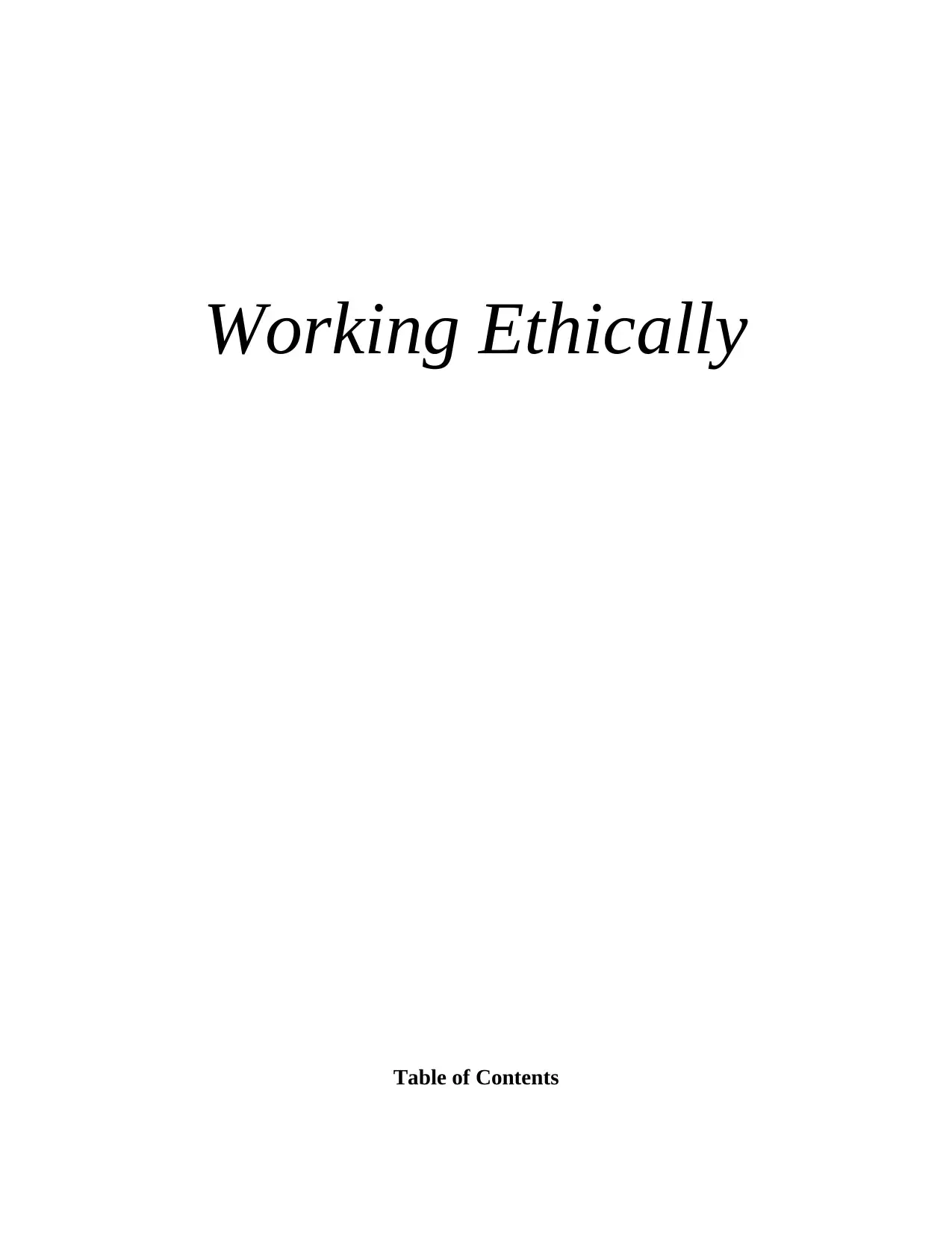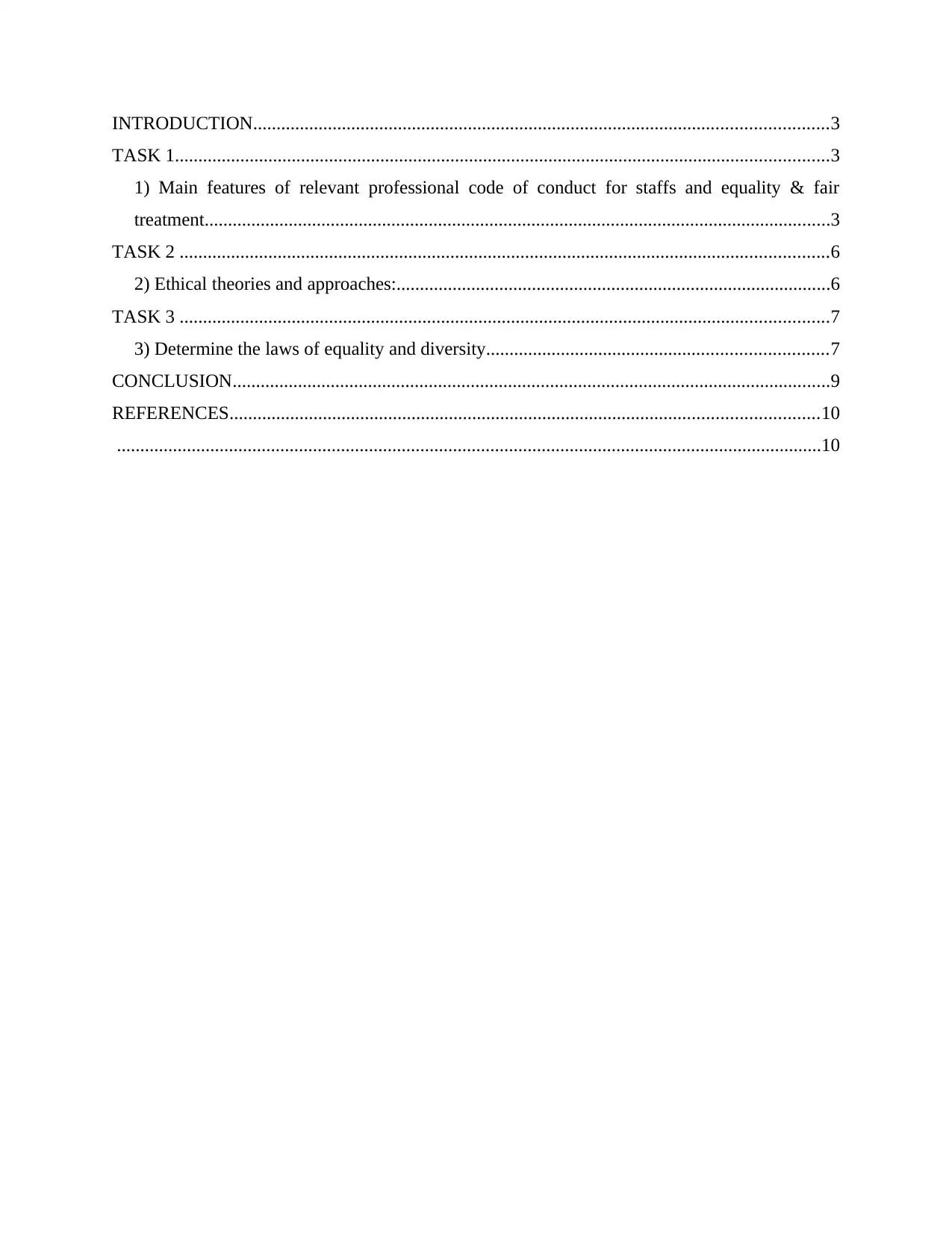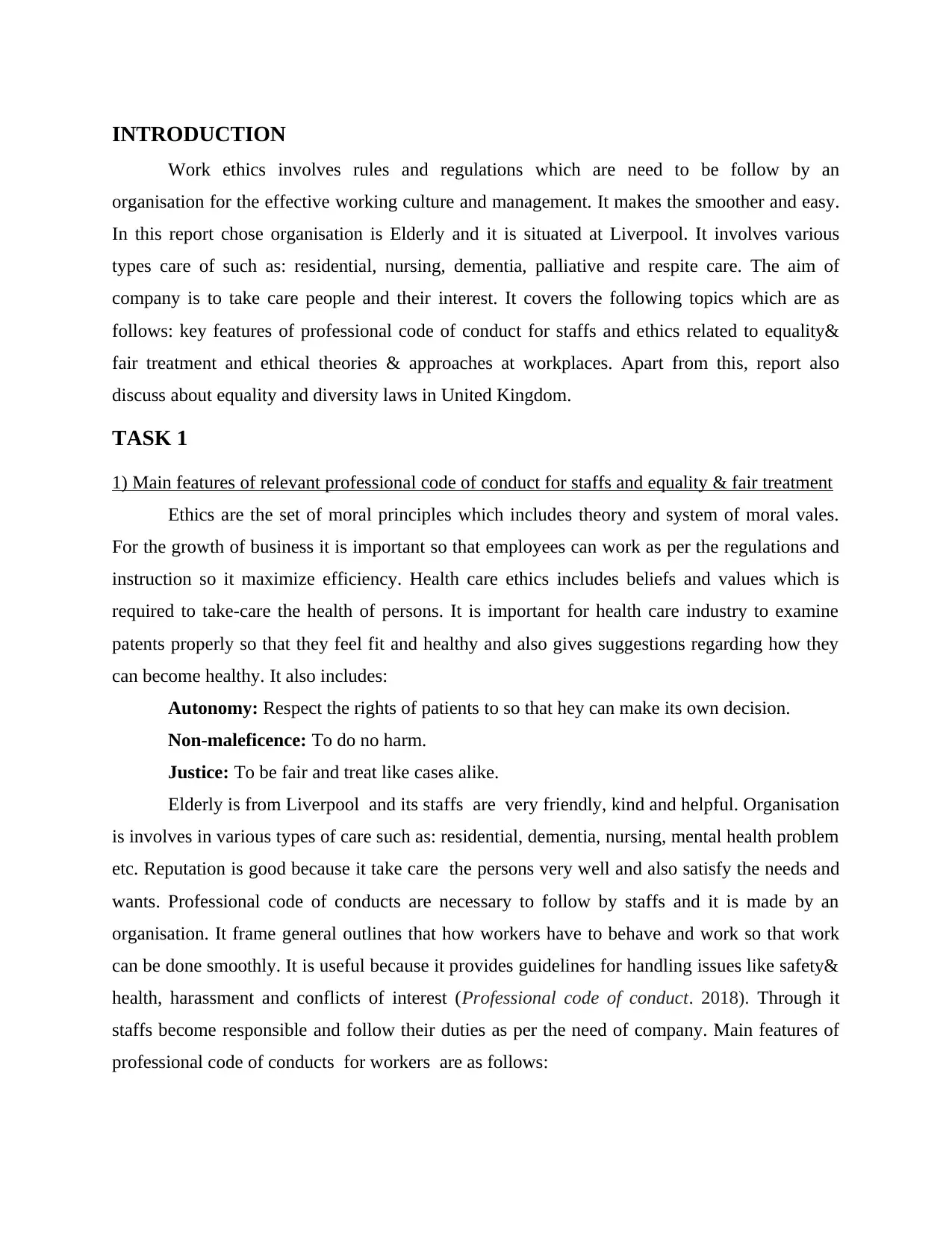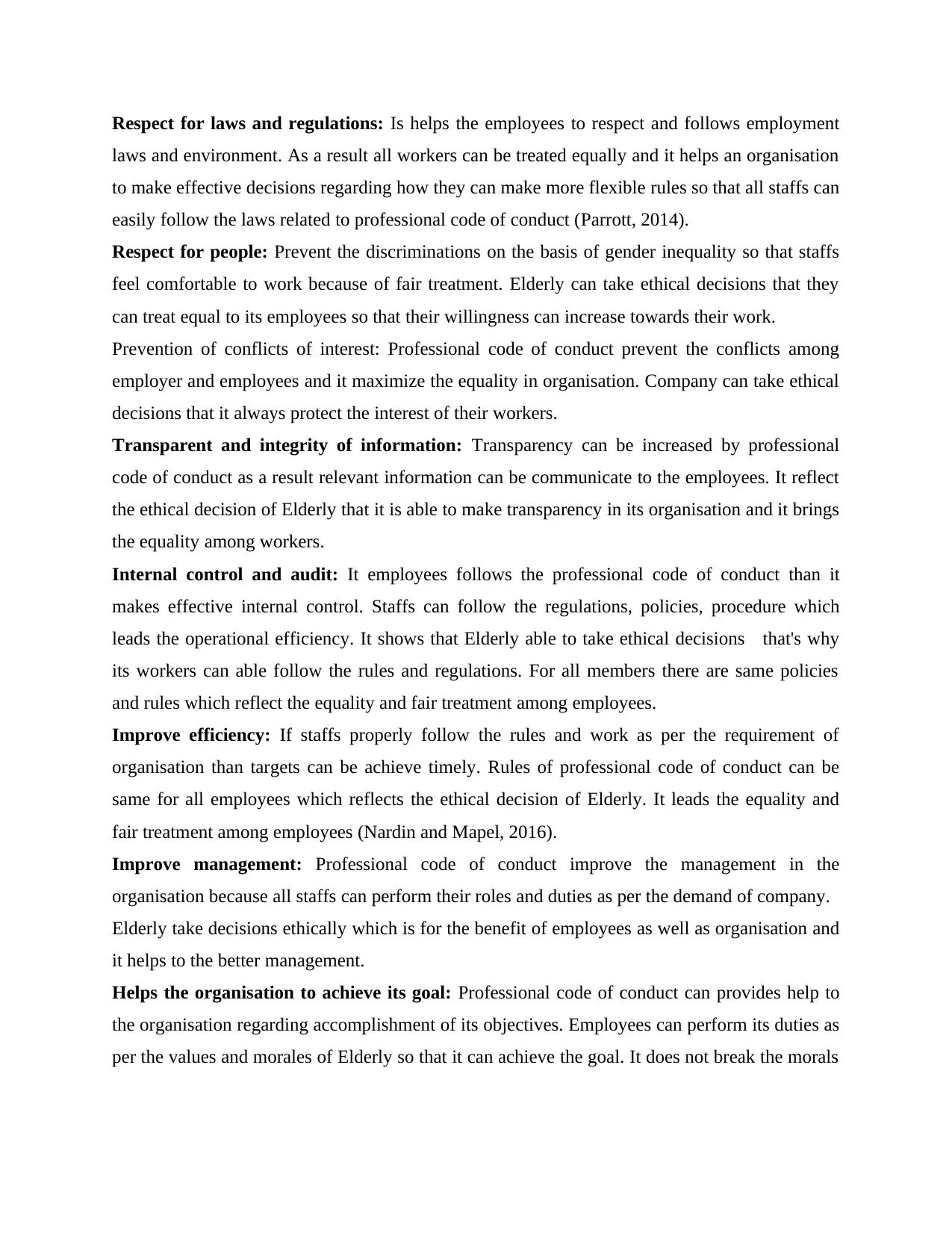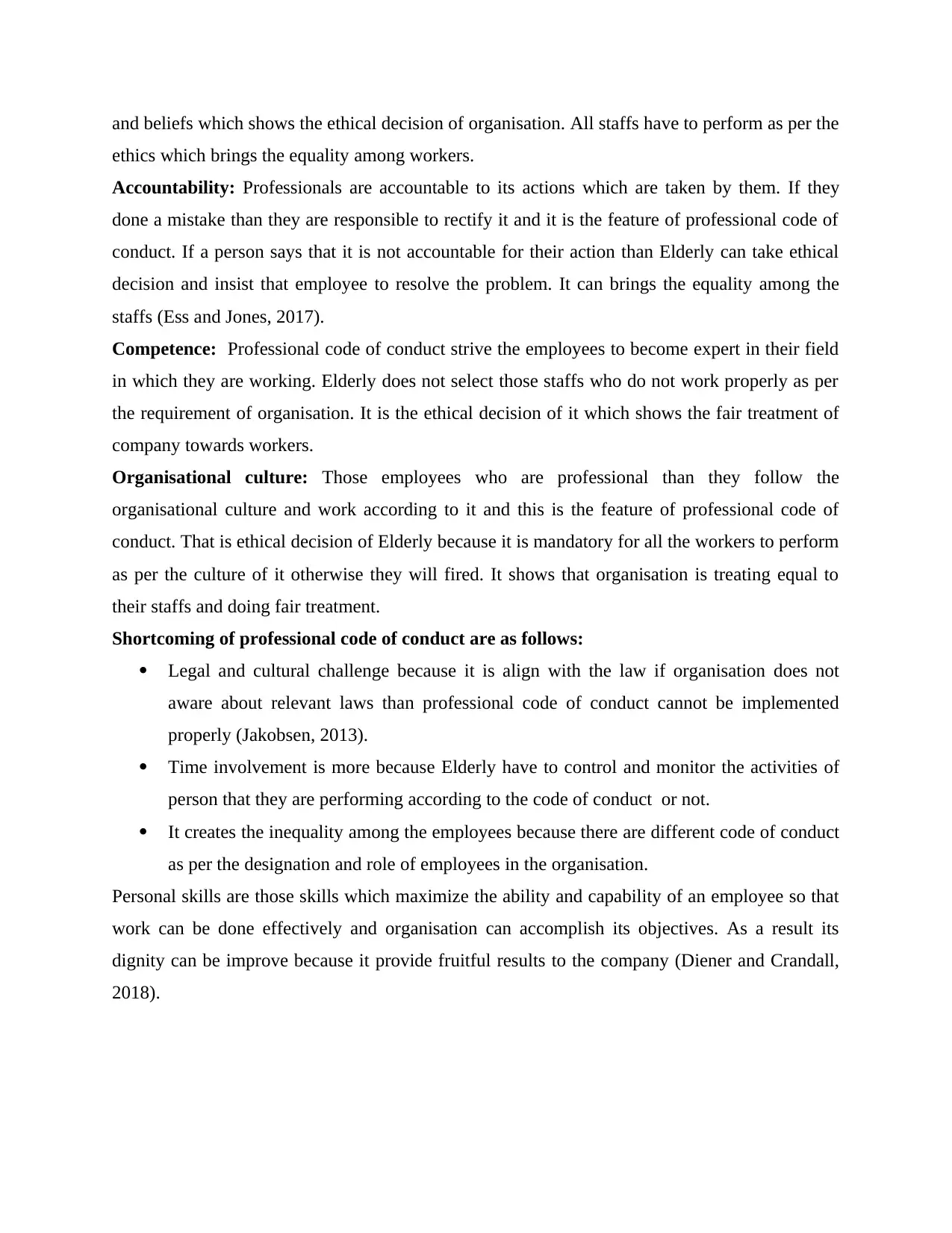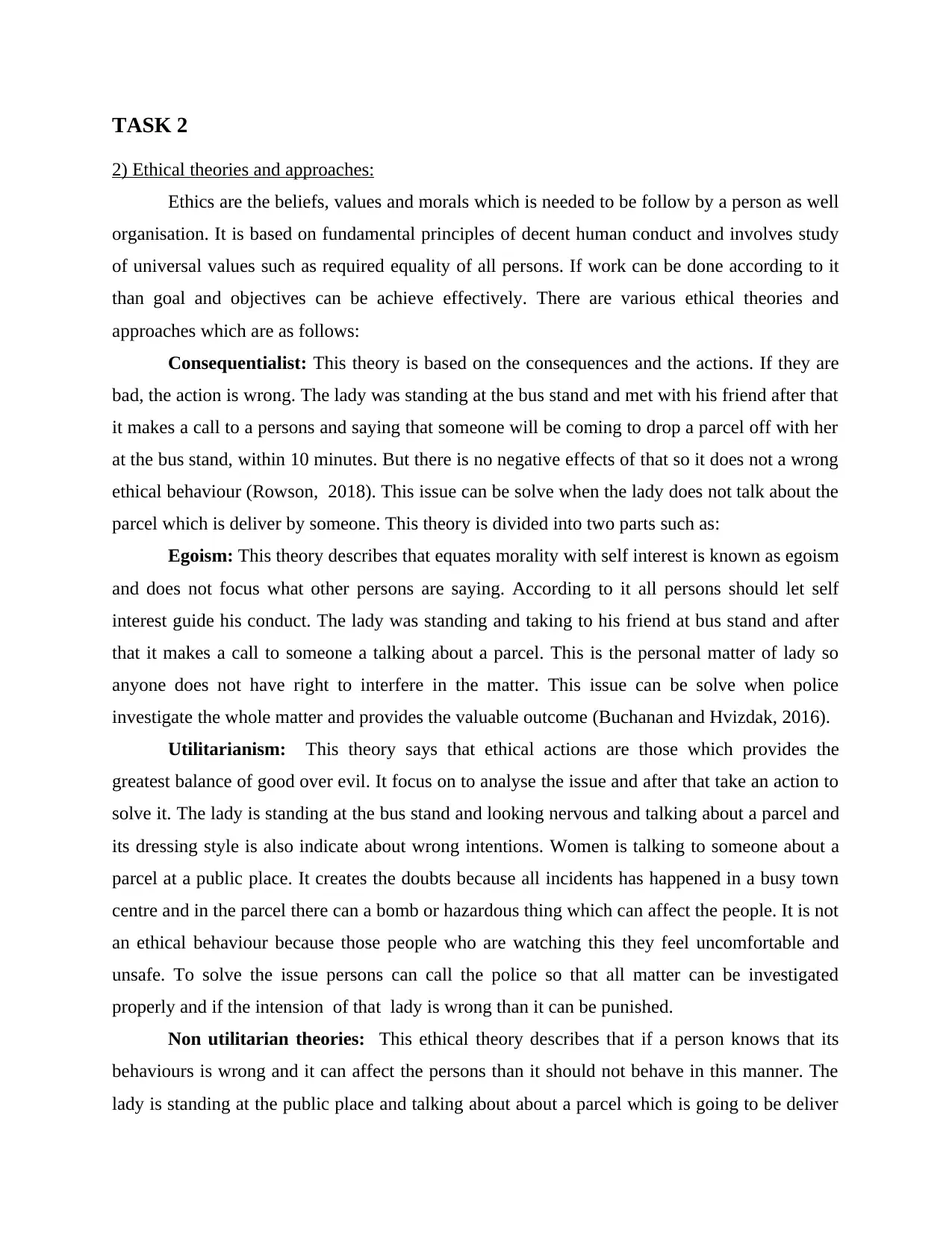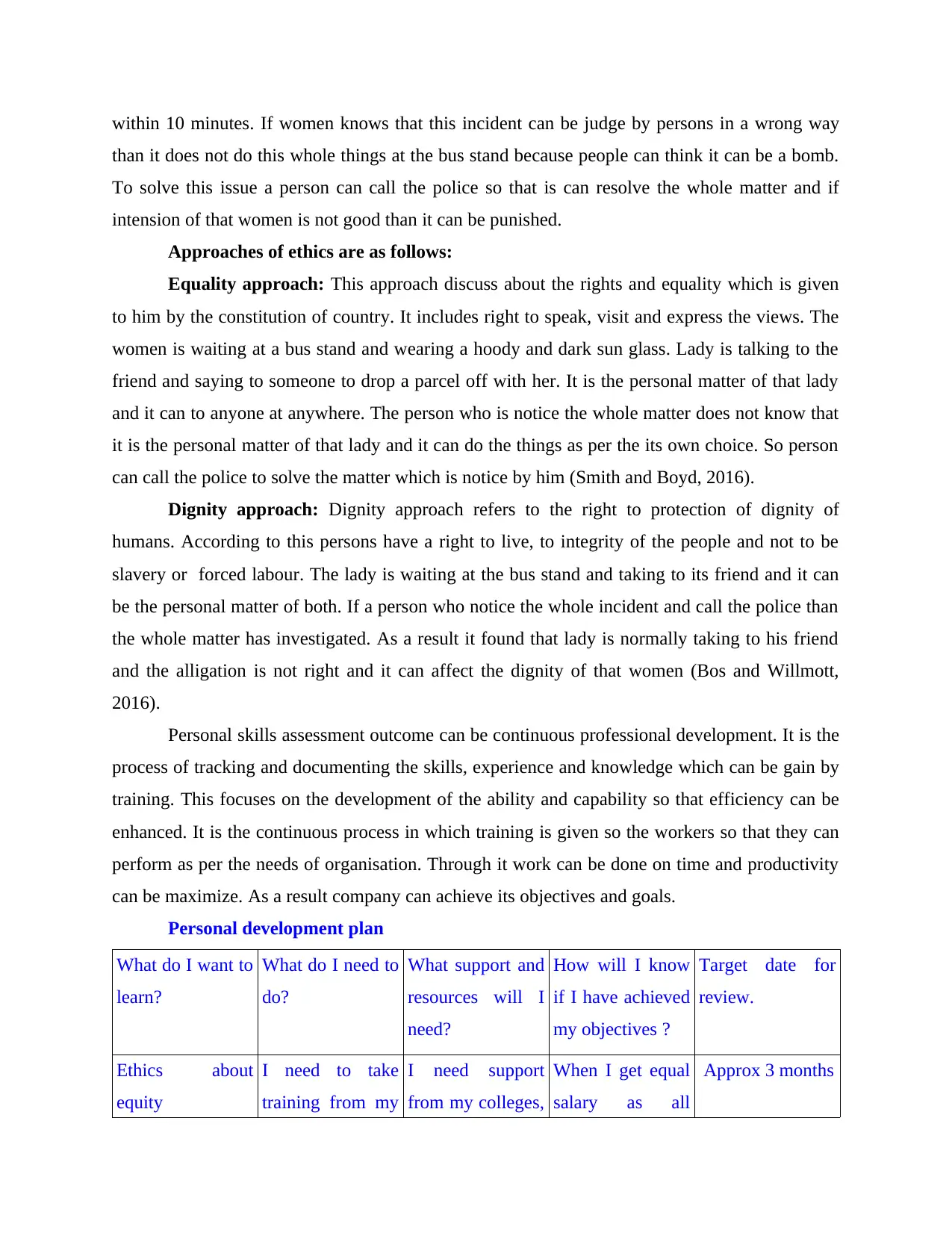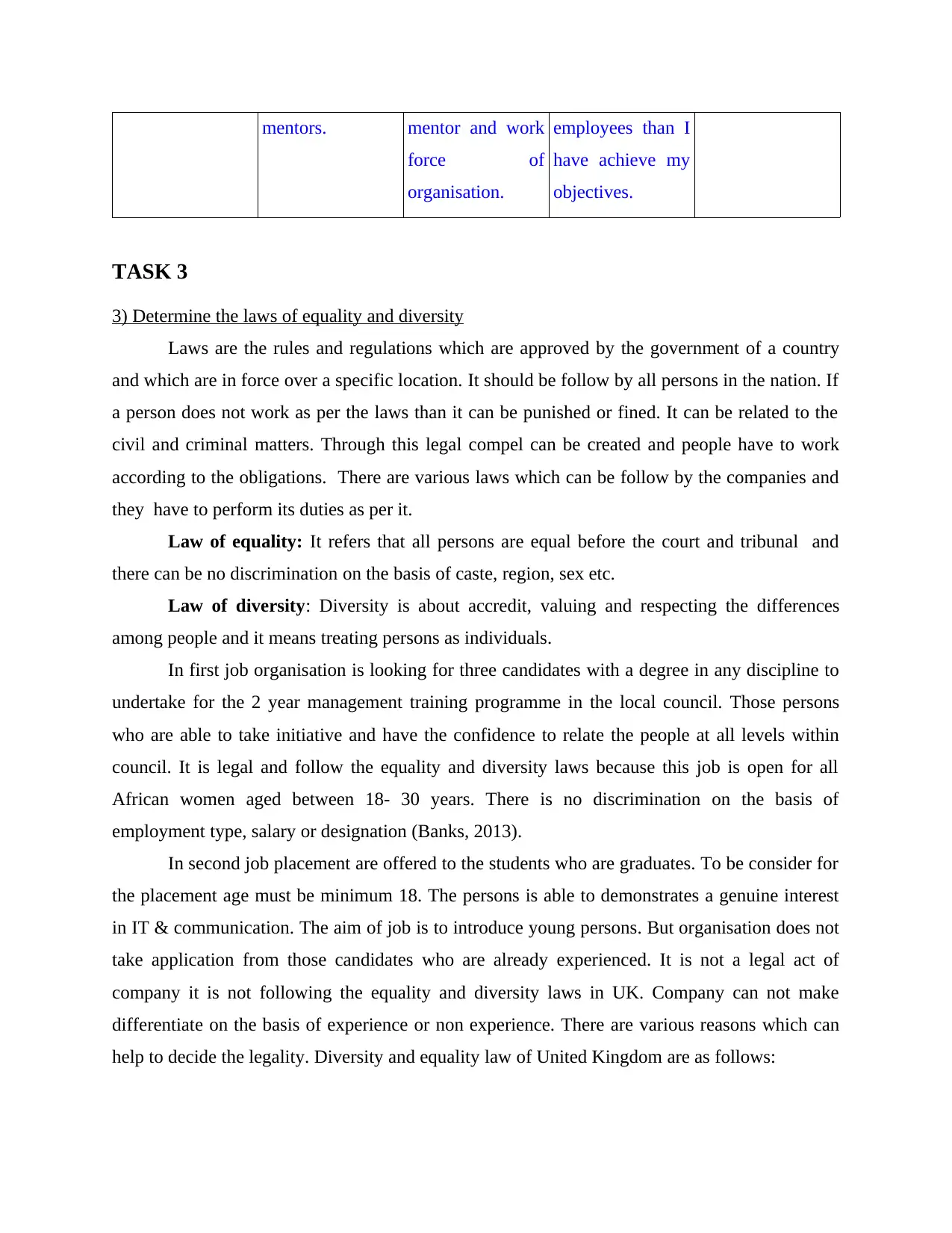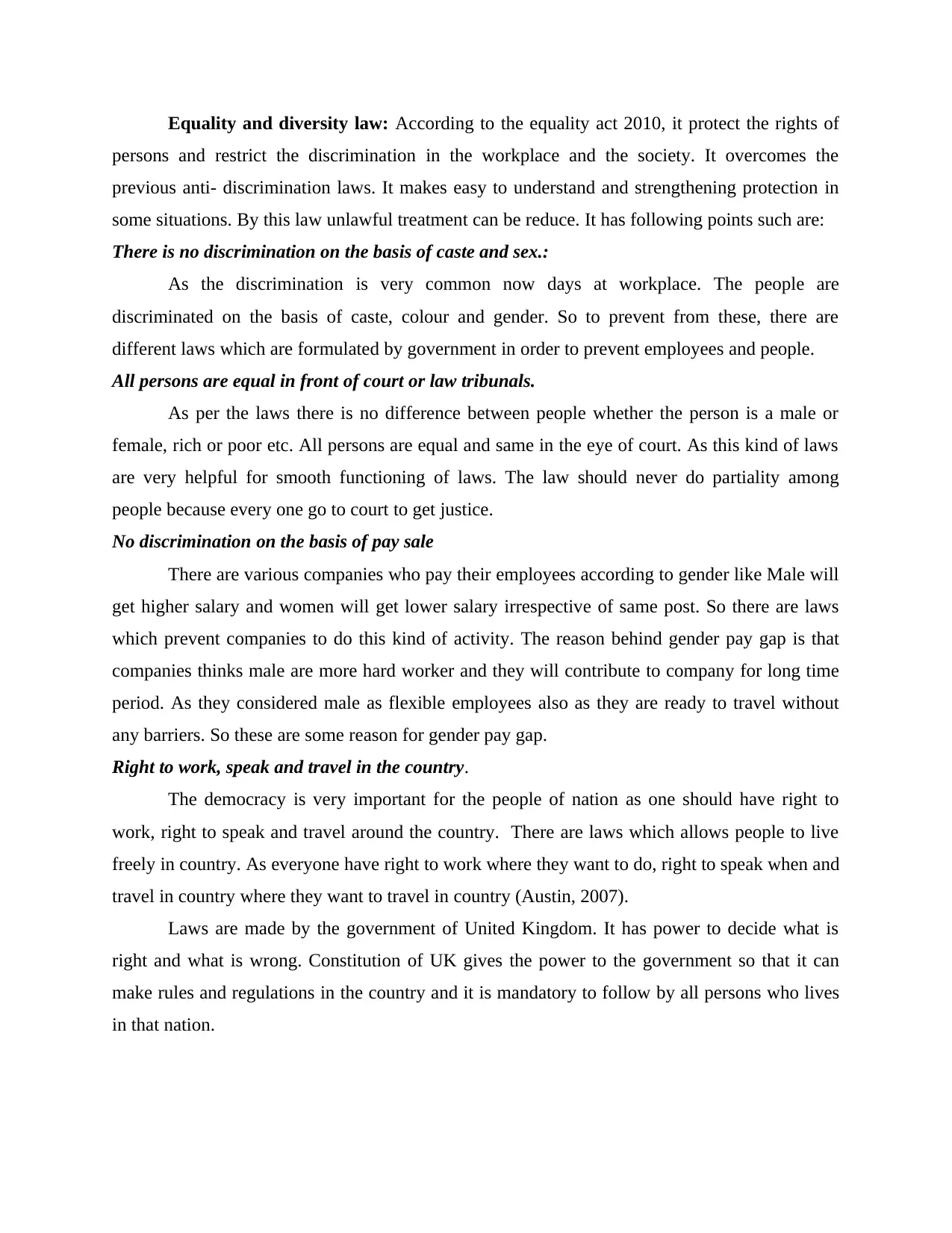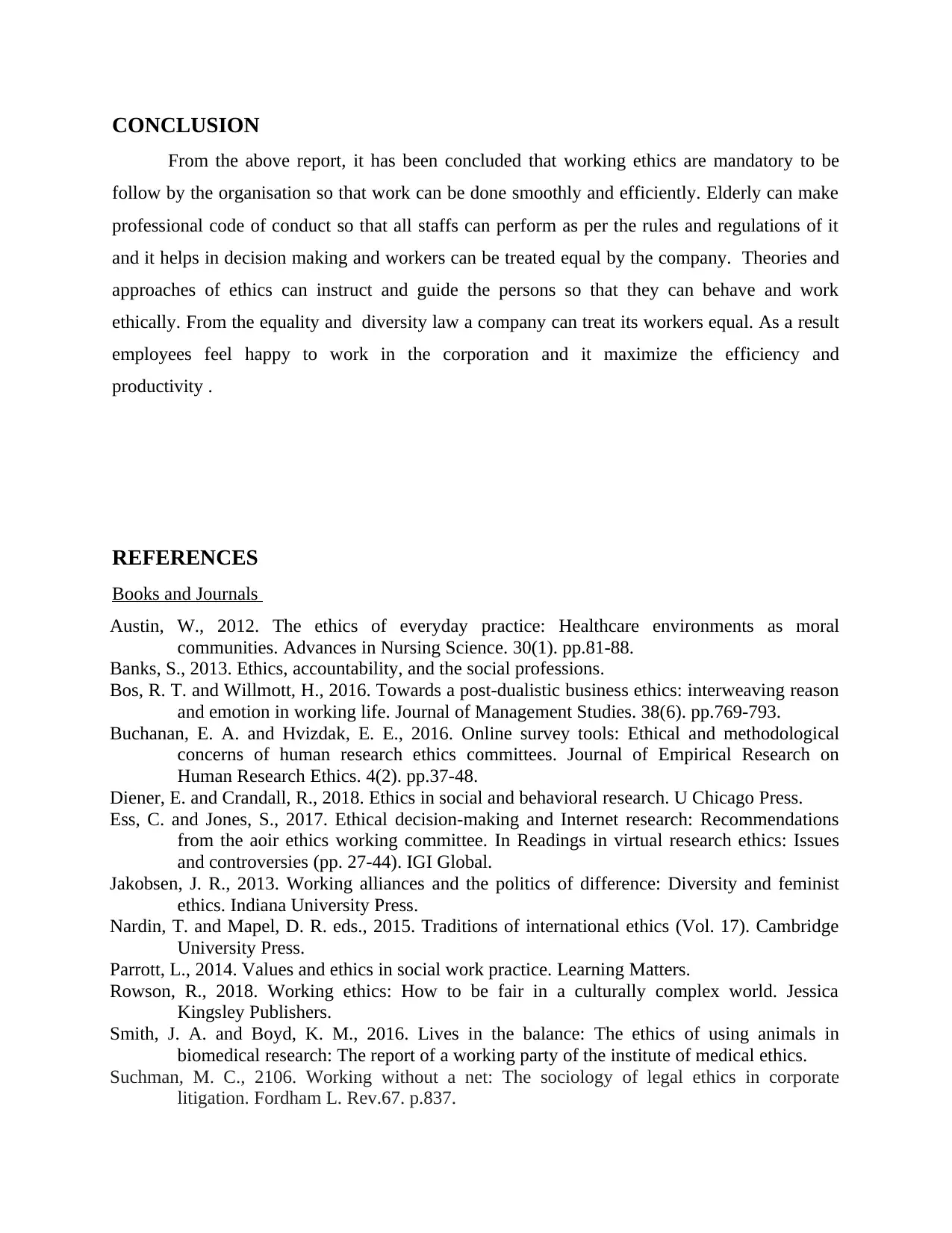This report discusses the importance of work ethics, professional code of conduct, equality & fair treatment, ethical theories & approaches, and laws of equality and diversity. It focuses on the case of Elderly, an organization in Liverpool that provides various types of care. The main features of a professional code of conduct for staffs are outlined, including respect for laws and regulations, respect for people, prevention of conflicts of interest, transparency and integrity of information, internal control and audit, improvement of efficiency and management, and accountability. The report also explores different ethical theories and approaches, such as consequentialist, egoism, utilitarianism, non-utilitarian theories, equality approach, and dignity approach. Additionally, it discusses the laws of equality and diversity, emphasizing the importance of treating all individuals equally and valuing diversity.
![[object Object]](/_next/static/media/star-bottom.7253800d.svg)
![[object Object]](/_next/static/media/star-bottom.7253800d.svg)
